Best AI Writing Tools for 2026
Struggling to find the right words? AI writing tools can help you write faster, better, and stress-free. From blog posts to social media captions, these tools generate, refine, and optimize content in seconds. The best AI writing tools that will boost creativity, improve efficiency, and keep writer’s block far away.
Why You Can Trust the Expertise of Sonary
At Sonary, we are committed to providing accurate and trustworthy information to help you make informed decisions. Our research process is meticulous, transparent, and guided by a dedication to maintaining the highest standards of integrity, ensuring accurate, real-world insights.
Read more
Unlike many other review platforms, we conduct in-depth evaluations of the software and services we feature. Our expert team tests and actively uses the tools we review to understand their features, performance, and value comprehensively. Our assessments are based on real-world use, giving you insights beyond surface-level descriptions. Our research methodology includes analyzing key consumer factors such as pricing, functionality, device usability, scalability, customer support quality, and unique industry-specific features. This hands-on approach and dedication to transparency mean you can trust Sonary to deliver regular, up-to-date content and recommendations that are well-researched and genuinely helpful for your business needs.
AI writing tools have changed the game, making content creation faster, smarter, and way less stressful. Whether you’re crafting blog posts, social media captions, or even just trying to get past writer’s block, these tools can generate, refine, and optimize text in seconds—without making it sound like a robot wrote it.
But with so many AI writing assistants out there, how do you know which one actually delivers? We’ve rounded up the best AI writing tools to help you write better, work faster, and never stare at a blank page again.
Best AI Writing Tools

Features
Writing Features
Pros & Cons
Pros
Cons

Features
Writing Features
Video Editing Features
Pros & Cons
Pros
Cons

Features
Writing Features
Available on
Pros & Cons
Pros
Cons

Features
Writing Features
Available on
Pros & Cons
Pros
Cons

Features
Writing Features
Pros & Cons
Pros
Cons
Quick Comparison
| AI Writing Tool | Key Feature | Best For | Pricing |
| Ryt | AI-powered content strategy recommendations | Content strategists and marketers |
Subscription-based, with free trial |
| Anyword | Data-driven copywriting with predictive analysis | Advertisers and performance marketers |
Pay-as-you-go and subscription plans |
| Jasper | Advanced AI writing with brand voice customization | Brands needing consistent AI-generated content | Monthly plans with business-tier options |
| Copy.ai | Automated content creation for blogs and ads | Social media managers and bloggers | Freemium model with premium upgrades |
| Wordtune | AI-assisted text rewriting and enhancement | Writers looking for style and clarity improvements | Freemium with advanced paid plans |
| Simplified | All-in-one AI content design and marketing suite | Small businesses and content teams | Freemium model with pro features available |
| ChatGPT | Conversational AI with deep language understanding | General users needing AI-powered text generation | Free and pro versions available |
| Gemini AI | Google-integrated AI writing tool | Researchers and businesses using Google tools | Google-integrated pricing model |
| Copilot | AI-powered writing assistance for Microsoft users | Microsoft users and corporate professionals | Included with Microsoft 365 subscription |
Our Top Picks
Choosing the right AI writing tool depends on your needs—whether you’re crafting marketing copy, refining your writing, or generating full-length content. Our top picks include AI-powered assistants that cater to different users, from businesses needing branded content to individuals looking for quick and polished writing. With options ranging from free tools to premium platforms with advanced features, these AI writing assistants can help streamline your content creation process and boost productivity.
Ryt
 Auto-complete fills in text as you type
Auto-complete fills in text as you type  Plagiarism checker ensures originality
Plagiarism checker ensures originality Ryt is an AI-powered content strategy and writing assistant designed to help marketers and businesses generate high-quality, data-driven content. It uses machine learning to analyze trends, suggest relevant topics, and craft engaging copy tailored to different platforms. With an emphasis on content strategy, Ryt provides users with keyword recommendations, SEO insights, and structured outlines to enhance visibility and engagement.
Key Features
- AI-powered content strategy. Ryt analyzes market trends and suggests high-performing topics, helping users craft data-driven content that aligns with industry demand.
- SEO optimization tools. Built-in keyword recommendations and readability analysis ensure that your content ranks higher in search engine results.
- Automated content generation. Generate blog posts, social media captions, and ad copy in seconds, streamlining the writing process for marketers and businesses.
- Tone and style customization. Adjust the AI’s writing tone to match your brand’s voice, whether it’s professional, conversational, or creative.
- Content performance insights. Ryt provides analytics on engagement and readability, allowing users to refine and improve their content over time.
- Plagiarism checker. Ensures that all generated text is original and unique, making it safe for professional use.
- User-friendly interface. A simple and intuitive platform designed for both beginners and experienced marketers to create high-quality content efficiently.
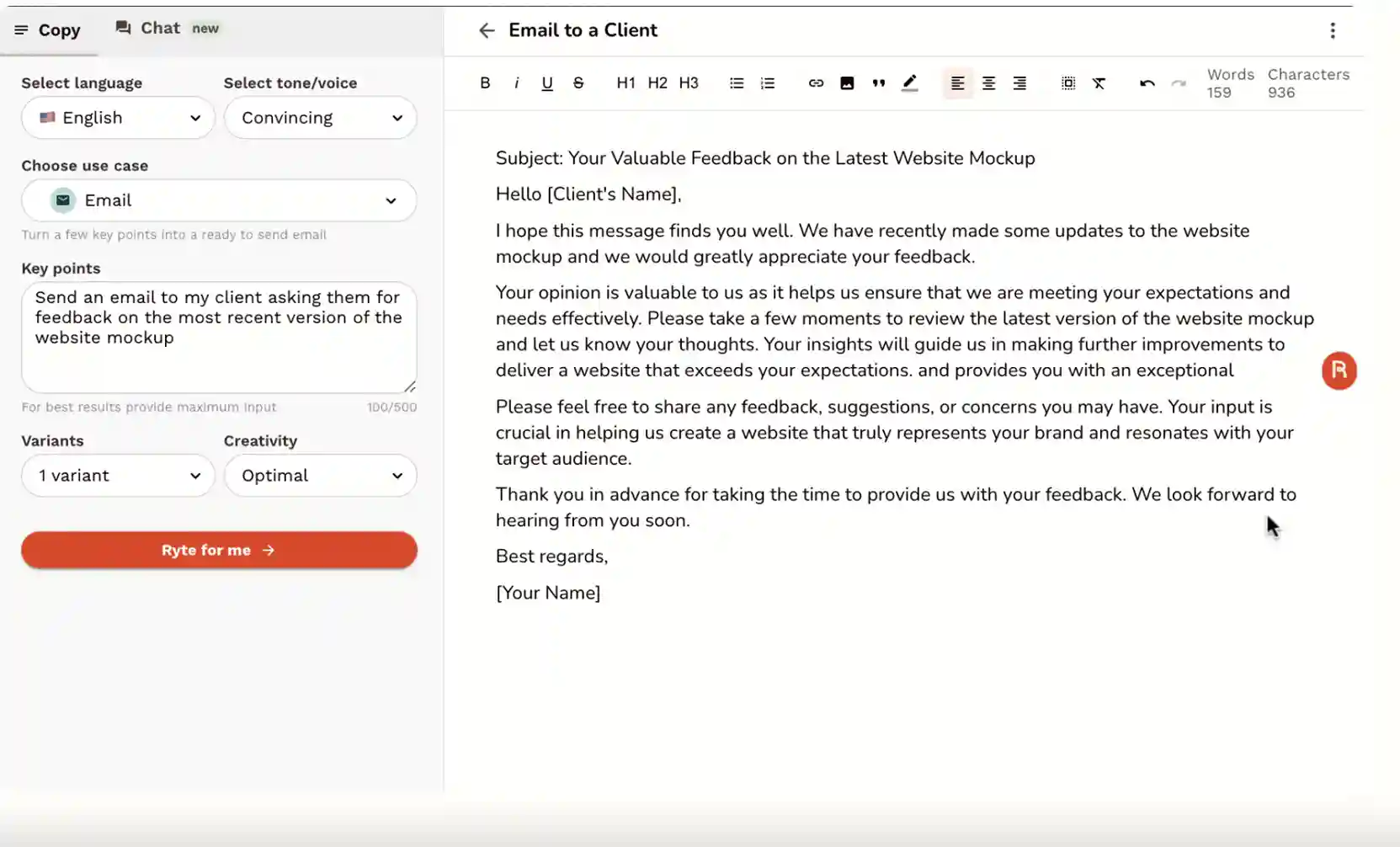
Pros and Cons
- Pros
- Generates data-driven content optimized for SEO.
- Offers tone and style customization to match brand identity.
- Provides keyword recommendations and content insights.
- Simple and user-friendly interface for easy navigation.
- Includes a plagiarism checker to ensure originality.
- Cons
- Limited free version with restrictions on features.
- May require manual adjustments to refine AI-generated text.
- Not as well-known as some competitors in the AI writing space.
Who It’s For
Ryt is ideal for content marketers, bloggers, and small business owners who need high-quality, SEO-optimized content without spending hours on research and writing. It’s a great tool for agencies and teams managing multiple projects, as well as SEO specialists looking for AI-driven keyword recommendations and content insights.
Anyword
 Apply data & analytics to your content
Apply data & analytics to your content  Robust security to protect sensitive data
Robust security to protect sensitive data Anyword is an AI-powered copywriting and marketing tool designed to create high-performing content backed by data and predictive analytics. Unlike traditional AI writing tools, Anyword focuses on conversion-driven copy, helping businesses generate text that resonates with their target audience. With features like predictive performance scoring and audience targeting, Anyword ensures that every piece of content—whether it’s an ad, landing page, or social media post—is optimized for engagement and effectiveness.
Key Features
- Predictive performance scoring. Analyzes AI-generated copy and predicts how well it will perform based on engagement and conversion data.
- AI-powered copy generation. Creates marketing copy for ads, emails, landing pages, and social media posts with a focus on conversion.
- Audience targeting insights. Helps tailor content to specific demographics, ensuring messaging resonates with the intended audience.
- Multiple content variations. Generates multiple versions of headlines, ad copy, and CTAs, allowing users to test different approaches.
- SEO and keyword optimization. Ensures AI-generated content is optimized for search engines and ranks higher in results.
- Tone and style customization. Adjusts writing style to match brand voice, whether formal, conversational, or persuasive.
- Integrated A/B testing. Enables marketers to compare different copy versions and refine messaging for better performance.
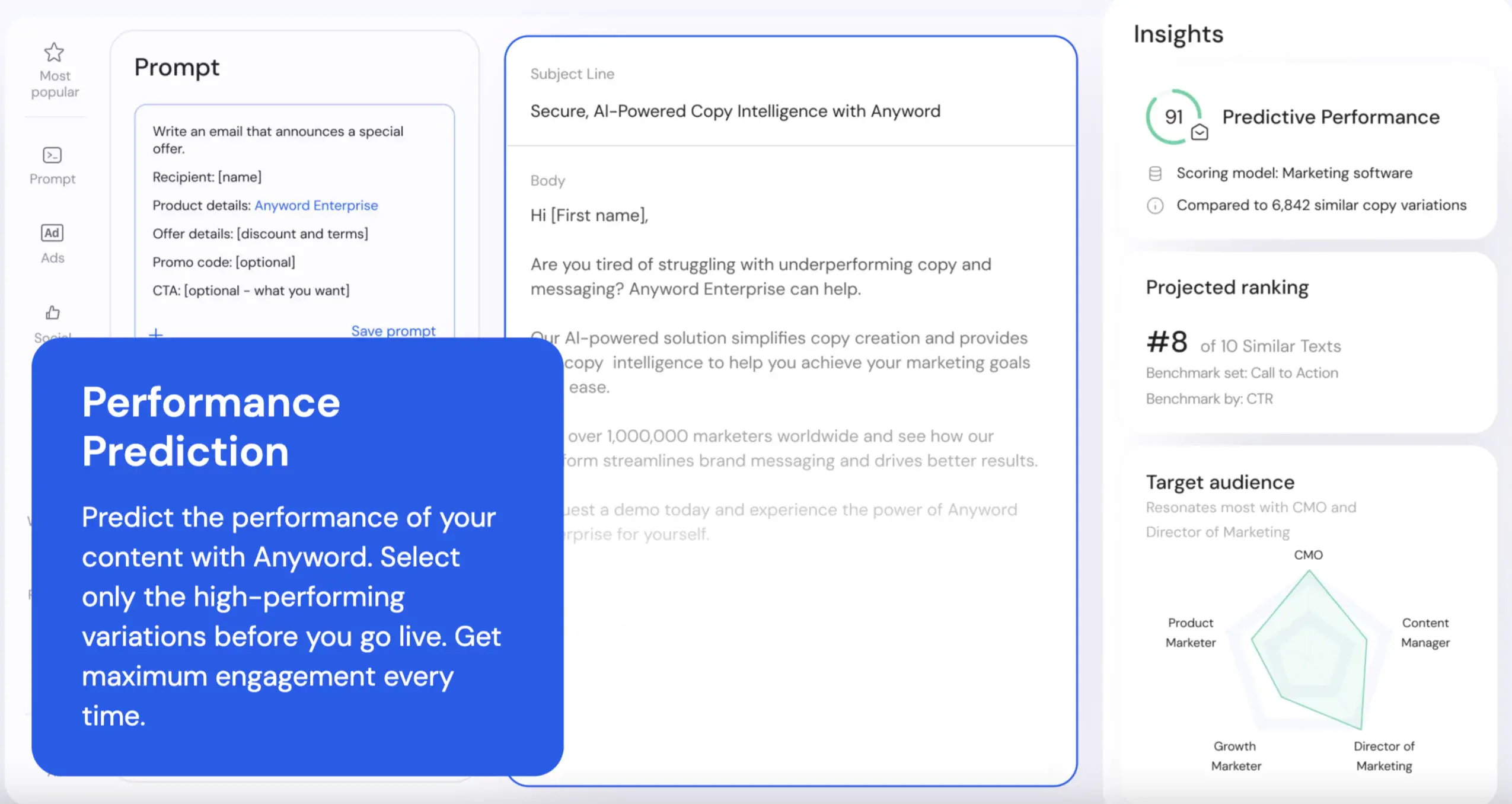
Pros and Cons
- Pros
- Predictive performance scoring helps optimize content for conversions.
- Generates multiple variations of copy for A/B testing.
- Customizable tone and style to match brand identity.
- Audience targeting insights improve content relevance.
- SEO optimization features enhance search visibility.
- Cons
- Higher-tier features require a paid subscription.
- May require manual adjustments to refine AI-generated copy.
- Focuses heavily on marketing content, less versatile for other writing needs.
Who It’s For
Anyword is perfect for marketers, advertisers, and businesses that need high-performing, data-driven content to maximize engagement and conversions. It’s especially useful for e-commerce brands, agencies, and content teams that run A/B tests and want AI-generated copy with predictive performance scoring.
Jasper
 Built-in collaboration tools for teams
Built-in collaboration tools for teams  SEO capabilities for search engines
SEO capabilities for search engines Jasper is an AI-powered writing assistant designed for businesses, marketers, and content creators who need high-quality, brand-consistent content at scale. Known for its advanced customization features, Jasper allows users to train the AI to match their unique brand voice, ensuring consistency across blogs, ads, emails, and social media content.
Key Features
- Brand voice customization. Allows users to train the AI to match their unique brand tone, ensuring consistency across all content.
- Long-form content generation. Creates in-depth blog posts, articles, and reports with AI-assisted writing and structuring.
- AI-powered marketing copy. Generates compelling ad copy, email campaigns, and landing page content optimized for conversions.
- SEO optimization tools. Integrates with platforms like SurferSEO to ensure content ranks well in search results.
- Collaboration and team workflows. Enables teams to work together on AI-generated content with shared access and version control.
- Multi-language support. Supports writing and translating content in multiple languages, making it a great tool for global businesses.
- Templates for different content types. Offers pre-built frameworks for blog posts, social media captions, product descriptions, and more.

Pros and Cons
- Pros
- Customizable AI that adapts to brand voice for consistency.
- Strong long-form content generation capabilities.
- SEO-friendly tools for optimizing content performance.
- Wide range of templates for various content types.
- Supports multiple languages for global content creation.
- Cons
- Higher pricing compared to some competitors.
- Requires initial setup to fine-tune brand voice.
- Can still require manual editing for accuracy and flow.
Who It’s For
Jasper is ideal for businesses, marketing teams, and content creators who need high-volume, brand-consistent AI-generated content. It’s especially useful for agencies and SEO professionals looking to scale content production without compromising quality.
Copy.ai
 Built-in analytics to measure performance
Built-in analytics to measure performance  Tailor brand voice with style adjustments
Tailor brand voice with style adjustments Copy.ai is an AI-powered writing tool designed to help businesses, marketers, and entrepreneurs create engaging copy quickly and efficiently. It specializes in short-form content, making it an excellent choice for generating ad copy, social media captions, email subject lines, and product descriptions in seconds. It’s a go-to tool for solopreneurs, small businesses, and marketing teams looking to enhance their content strategy with AI-driven creativity.
Key Features
- AI-powered short-form content generation. Quickly creates ad copy, social media posts, email subject lines, and product descriptions.
- Pre-built content templates. Offers ready-to-use frameworks for different types of marketing copy, saving time and effort.
- Tone and style customization. Allows users to adjust writing tone, from professional to playful, to match their brand voice.
- Blog outline and idea generation. Helps users brainstorm and structure blog content efficiently.
- Multilingual support. Enables content creation in multiple languages for global reach.
- One-click content improvement. Provides rewriting and editing suggestions to enhance clarity and engagement.
- User-friendly interface. Simple and intuitive design makes it accessible for beginners and non-writers.
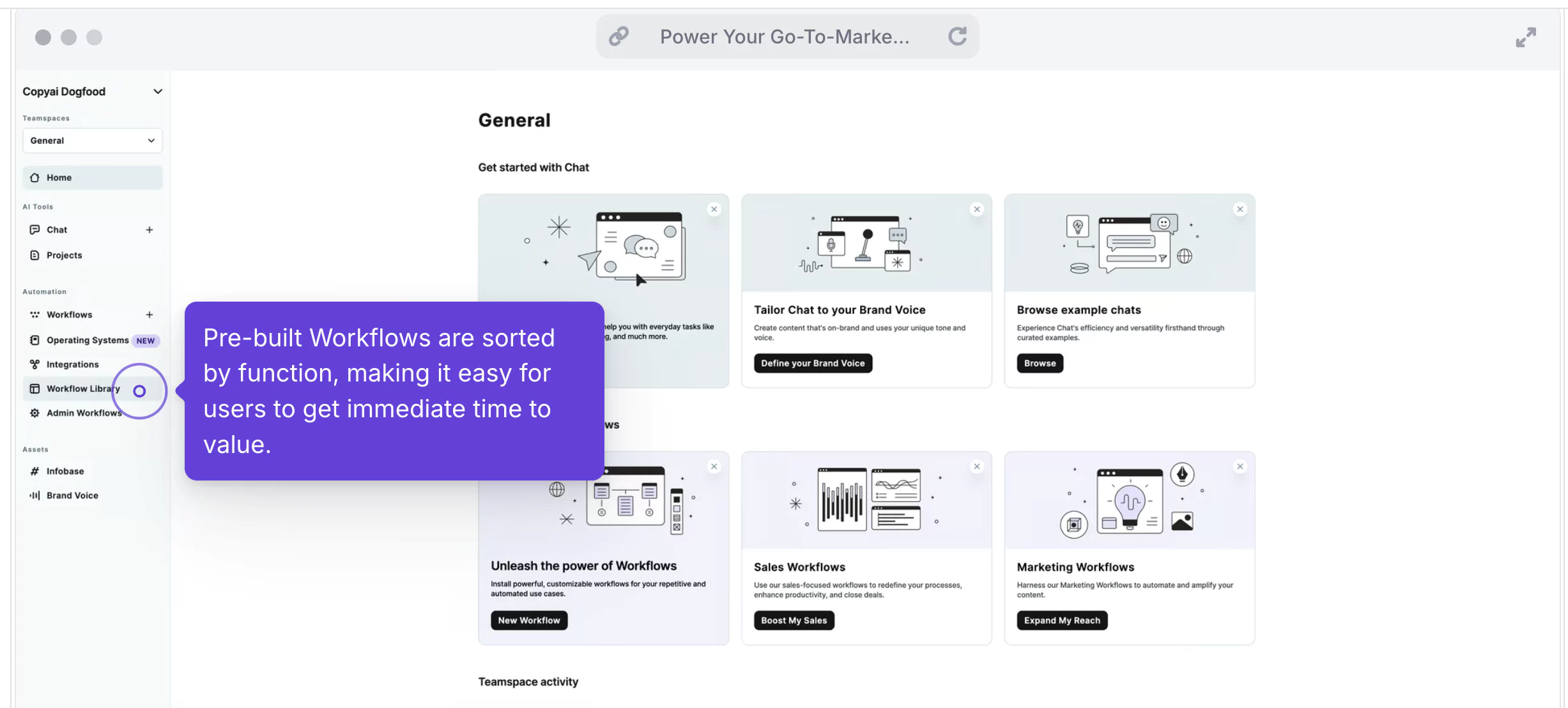
Pros and Cons
- Pros
- Quick and easy AI-powered content generation for short-form copy.
- Wide range of pre-built templates for different content types.
- Customizable tone and style to match brand voice.
- Supports multiple languages for global content creation.
- User-friendly interface, great for beginners and non-writers.
- Cons
- Limited capabilities for long-form content creation.
- AI-generated copy may require manual refinement for accuracy.
- Free plan has usage restrictions compared to premium options.
Who It’s For
Copy.ai is perfect for marketers, small business owners, and entrepreneurs who need quick, high-quality short-form content for ads, social media, and email marketing. It’s a great fit for content creators and e-commerce brands looking to generate product descriptions and engaging copy without spending hours writing. With its easy-to-use templates and multilingual support, it’s also ideal for those who want to scale their marketing efforts efficiently.
Wordtune
 Summarize articles and videos
Summarize articles and videos  Quickly translate content to English
Quickly translate content to English Wordtune is an AI-powered writing assistant designed to help users refine, enhance, and improve their writing with real-time suggestions. Unlike traditional grammar checkers, Wordtune goes beyond fixing errors by offering rewording, tone adjustments, and clarity improvements, making it a great tool for writers, professionals, and students. It’s especially useful for those who want to elevate their writing without losing their unique voice.
Key Features
- AI-powered rewriting suggestions. Offers multiple alternative phrasings to improve clarity, conciseness, and engagement.
- Tone adjustments. Allows users to modify their writing to be more formal, casual, professional, or persuasive.
- Sentence expansion and shortening. Helps restructure sentences to add more detail or make them more concise.
- Real-time grammar and style enhancements. Corrects grammar while suggesting improvements to sentence structure and readability.
- Multilingual translation and rewriting. Supports content creation and refinement for users writing in multiple languages.
- Browser extension and integrations. Works seamlessly with Google Docs, email platforms, and other online writing tools.
- User-friendly interface. Simple and intuitive, making it accessible for writers of all skill levels.
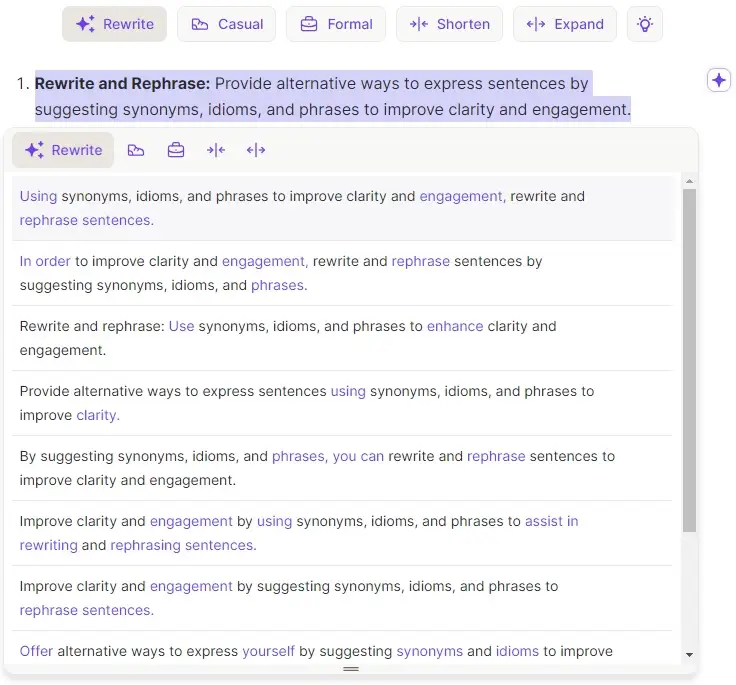
Pros and Cons
- Pros
- Provides multiple rewriting suggestions for improved clarity and engagement.
- Allows tone adjustments to fit different writing styles.
- Offers sentence expansion and shortening for better readability.
- Works as a browser extension, integrating with popular writing tools.
- Supports multilingual translation and rewriting.
- Cons
- Free version has limited daily rewrites.
- Not designed for generating long-form content from scratch.
- AI suggestions may still require manual adjustments for context accuracy.
Who It’s For
Wordtune is ideal for writers, professionals, and students who want to refine and enhance their writing with AI-powered rewriting suggestions. It’s perfect for content creators, marketers, and business professionals who need clear, engaging, and well-structured writing for emails, reports, blogs, and social media. With its tone adjustment and sentence restructuring features, it’s also a great tool for non-native English speakers looking to improve fluency and readability in their writing.
Simplified
 Type in a topic for AI-made presentation
Type in a topic for AI-made presentation  AI-powered voiceovers & voice cloning
AI-powered voiceovers & voice cloning Simplified is an all-in-one AI-powered content creation platform designed for marketers, businesses, and creators who need more than just AI writing. It combines copywriting, graphic design, video editing, and social media management into a single tool, making it a powerful option for those looking to streamline their workflow.
With its AI writing assistant, design templates, and content scheduling features, Simplified is perfect for users who want to create, edit, and publish marketing content without switching between multiple platforms. It’s especially useful for small businesses, content teams, and social media managers looking for an easy way to scale their content production.
Key Features
- AI-powered writing assistant. Generates marketing copy, blog posts, ad scripts, and social media captions with AI-driven creativity.
- Built-in graphic design tools. Offers customizable templates for social media posts, presentations, and branding materials.
- AI video editing. Provides easy-to-use video editing tools for creating marketing and promotional content.
- Social media management. Allows users to plan, schedule, and publish posts across multiple platforms from a single dashboard.
- Collaboration features. Enables teams to work together on content creation with shared access and real-time editing.
- AI-powered translation. Supports multiple languages for global content creation and localization.
- User-friendly interface. Combines multiple content creation tools in one intuitive, easy-to-navigate platform.

Pros and Cons
- Pros
- Combines AI writing, graphic design, video editing, and social media management in one platform.
- User-friendly interface, making content creation seamless for beginners and professionals.
- AI-powered writing assistant helps generate marketing copy quickly.
- Collaboration tools allow teams to work together efficiently.
- Supports multiple languages for global content creation.
- Cons
- Free version has limitations on advanced features.
- May not offer as much depth in AI writing compared to dedicated writing tools.
- Can feel overwhelming for users who only need one specific feature rather than an all-in-one solution.
Who It’s For
Simplified is perfect for marketers, small business owners, and content creators who need an all-in-one platform for writing, designing, video editing, and social media management. It’s ideal for social media managers and agencies looking to streamline content production and teams collaborating on marketing campaigns.
ChatGPT
 Elevate SEO with keyword integration
Elevate SEO with keyword integration  Translate & localize for global audiences
Translate & localize for global audiences ChatGPT is an AI-powered conversational assistant that helps with writing, brainstorming, coding, and research. Built by OpenAI, it uses natural language processing (NLP) to generate human-like responses, refine text, and assist with content creation.
Widely used by writers, businesses, and developers, ChatGPT enhances productivity by streamlining tasks like marketing copy, technical explanations, and creative ideation, making it a versatile tool for various industries.
Key Features
- AI-powered text generation. Creates high-quality content for blogs, emails, marketing copy, and more.
- Conversational assistance. Engages in dynamic, context-aware discussions to refine ideas and provide insights.
- Code writing and debugging. Assists developers by generating code, explaining functions, and troubleshooting errors.
- Content refinement and editing. Helps improve clarity, grammar, and tone for polished writing.
- Multi-industry adaptability. Supports professionals in marketing, education, business, and technical fields.
- Integration capabilities. Can be connected with apps, chatbots, and automation tools for enhanced workflows.
- Customizable tone and style. Adjusts writing style to match user preferences, from formal reports to casual copy.

Pros and Cons
- Pros
- Generates high-quality content quickly for various writing needs.
- Engages in dynamic, context-aware conversations.
- Assists with coding, debugging, and technical explanations.
- Helps refine and edit text for improved clarity and tone.
- Supports multiple industries, from marketing to education.
- Cons
- Free version has limitations on advanced features and response depth.
- May generate factually incorrect or outdated information.
- Lacks real-time internet access unless integrated with external tools.
Who It’s For
ChatGPT is ideal for writers, marketers, developers, and business professionals who need an AI-powered assistant for content creation, brainstorming, coding, and research. It’s a great tool for students and educators looking for explanations and writing support, as well as entrepreneurs and teams wanting to streamline workflows and automate tasks. With its adaptability, ChatGPT serves a wide range of industries, making it a valuable tool for both personal and professional use.
Gemini AI
 Built-in fact-checking and citation tools
Built-in fact-checking and citation tools  Boost your writing skills & efficiency
Boost your writing skills & efficiency Gemini AI, developed by Google, is a powerful AI assistant designed for text generation, research, and creative problem-solving. It integrates seamlessly with Google’s ecosystem, making it a valuable tool for users who rely on Google Docs, Sheets, and other productivity apps.
Key Features
- Seamless Google integration. Works directly with Google Docs, Sheets, and other Google Workspace tools for efficient workflow management.
- Advanced natural language processing. Provides detailed, context-aware responses for writing, research, and problem-solving.
- Multimodal capabilities. Processes text, images, and other data types to generate more dynamic and insightful responses.
- Real-time data analysis. Helps users summarize information, extract key insights, and automate tasks within Google’s ecosystem.
- AI-powered content generation. Assists with writing articles, reports, emails, and marketing copy with a customizable tone and style.
- Research and summarization tools. Extracts key points from long documents, making information more digestible.
- Customizable user experience. Adapts to different industries, making it useful for businesses, educators, and researchers.
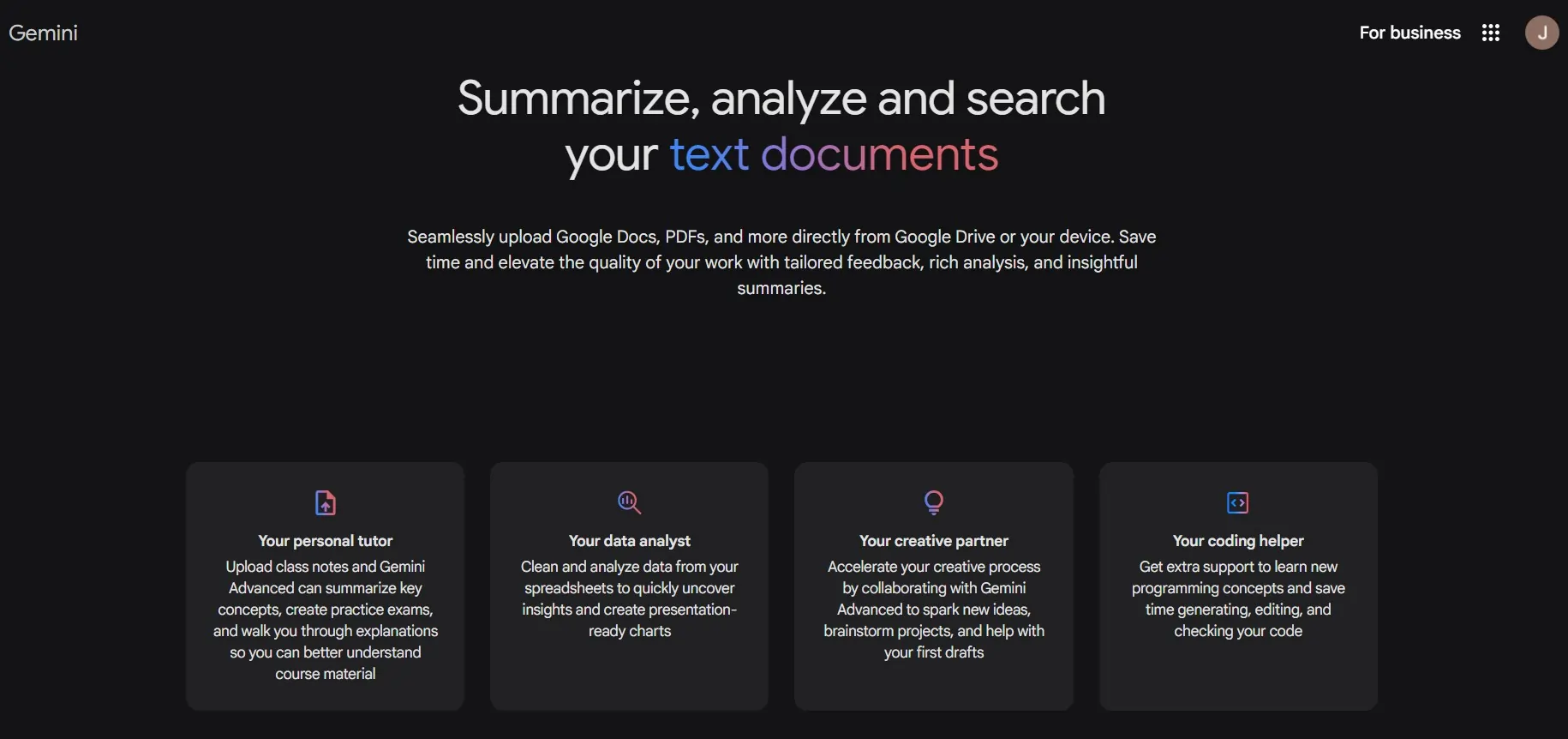
Pros and Cons
- Pros
- Seamless integration with Google Workspace for enhanced productivity.
- Strong natural language processing for accurate, context-aware responses.
- Multimodal capabilities allow it to process text, images, and other data types.
- Useful for research, summarization, and automation of complex tasks.
- AI-powered content generation helps streamline writing and communication.
- Cons
- Advanced features may require a Google Workspace subscription.
- Limited customization compared to standalone AI writing tools.
- May prioritize Google’s ecosystem, making it less flexible for non-Google users.
Who It’s For
Gemini AI is perfect for business professionals, researchers, and content creators who rely on Google Workspace for productivity. It’s an excellent tool for marketers, students, and educators needing AI-powered writing, research, and summarization features. With its multimodal capabilities and real-time data analysis, Gemini AI is also useful for teams managing complex projects and individuals looking to streamline daily tasks with AI-driven insights.
Copilot
 Real-time suggestions, edits & generation
Real-time suggestions, edits & generation  AI-powered document & email summarizations
AI-powered document & email summarizations Copilot is Microsoft’s AI-powered assistant designed to enhance productivity by integrating directly into Microsoft 365 applications like Word, Excel, Outlook, and Teams. It leverages AI to generate text, summarize documents, analyze data, and automate workflows, making it a powerful tool for professionals and enterprises.
It’s particularly valuable for businesses, corporate teams, and professionals looking to boost efficiency in their daily tasks.
Key Features
- Seamless Microsoft 365 integration. Works directly within Word, Excel, Outlook, Teams, and other Microsoft apps for enhanced productivity.
- AI-powered text generation. Assists with writing reports, emails, presentations, and other business documents.
- Data analysis in Excel. Automates data insights, generates summaries, and suggests trends based on spreadsheet data.
- Meeting and email summarization. Provides concise recaps of meetings and emails, helping users stay on top of important information.
- Workflow automation. Reduces repetitive tasks by automating processes within Microsoft’s ecosystem.
- Enterprise-level security. Ensures data privacy and compliance, making it suitable for corporate environments.
- Context-aware AI assistance. Uses business data to generate relevant suggestions and improve workplace efficiency.
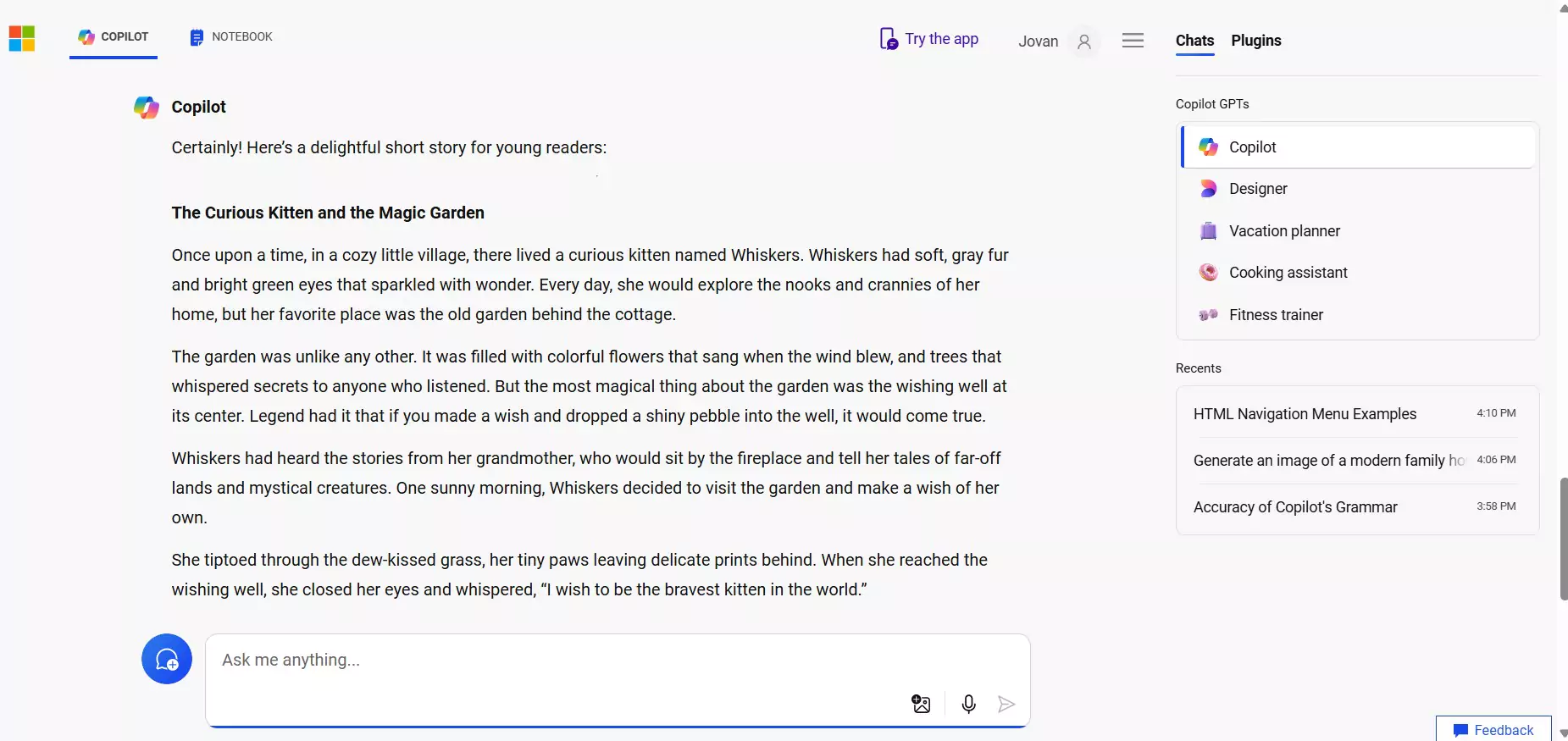
Pros and Cons
- Pros
- Fully integrated with Microsoft 365 applications for seamless productivity.
- AI-powered writing assistance for reports, emails, and presentations.
- Advanced data analysis and automation in Excel.
- Summarizes meetings and emails for better organization.
- Enterprise-grade security and compliance for businesses.
- Cons
- Requires a Microsoft 365 subscription for full access.
- Primarily benefits users within the Microsoft ecosystem.
- Limited customization compared to standalone AI writing tools.
Who It’s For
Copilot is ideal for business professionals, corporate teams, and enterprises that rely on Microsoft 365 for their daily workflows. It’s especially useful for executives, analysts, and project managers who need AI-driven assistance with writing, data analysis, and automation. With its seamless integration into Microsoft apps, Copilot is a great tool for boosting workplace productivity, streamlining communication, and managing large amounts of information efficiently.
AI Writing Tool Uses
AI content writers can offer significant business value, making them a worthwhile investment for many companies. For businesses aiming to streamline their content creation process and achieve better results, investing in an AI writing tool is a smart move. Here’s why:
1. Enhanced productivity
AI writing tools can dramatically speed up the content creation process. By automating tasks such as drafting, editing, and formatting, these tools free up time for writers to focus on more strategic activities.
2. Improved content quality
With features like grammar checks, style suggestions, and readability enhancements, AI writing tools help produce high-quality content consistently. This ensures your content is polished and professional, reducing the need for extensive revisions.
3. SEO optimization
Many AI writing tools come with built-in SEO capabilities, including keyword research and content optimization. These features help improve your content’s search engine rankings, driving more organic traffic to your website.
4. Cost efficiency
By reducing the time and effort required for content creation, AI writing tools can lower overall production costs. They enable smaller teams to produce more content without sacrificing quality, making them a cost-effective solution for businesses of all sizes.
5. Consistency and brand voice
AI writing tools help maintain a consistent tone and style across all your content. This is crucial for businesses looking to reinforce their brand voice and ensure uniform messaging across various platforms.
6. Innovation and creativity
These tools can inspire new ideas and perspectives, providing suggestions and prompts that spark creativity. For writers experiencing writer’s block, AI writing tools serve as a valuable resource for generating fresh content ideas.
Types of AI Writing Tools
-
AI writing assistants. These tools help with drafting, editing, and improving the quality of your writing. They are designed to assist writers throughout the entire writing process.
-
AI content generators. These tools can produce various types of content, including articles, blog posts, social media updates, and more, based on user inputs or predefined templates.
-
SEO AI tools. These focus on optimizing content for search engines. They include features like keyword research, competitor analysis, and content optimization to help improve search engine rankings.
-
AI copywriting tools. These are specialized in creating persuasive and engaging marketing copy tailored to specific audiences, such as advertisements, landing pages, and email campaigns.
-
Long-form content generators. These tools are designed to create extensive content pieces, such as detailed articles, reports, and ebooks, from a set of prompts or outlines.
-
Short-form content generators. These focus on creating shorter content pieces, such as social media posts, product descriptions, and email snippets, quickly and efficiently.
-
AI text editors. These tools help refine and polish written content by checking for grammar, style, and consistency, often providing suggestions for improvement.
-
Plagiarism checkers. These tools ensure the originality of content by checking it against a vast database of existing texts to detect any potential plagiarism.
-
AI storytellers. These are designed for creative writing, helping writers develop plotlines, character arcs, and dialogues. They are particularly useful for novels and short stories.
-
Collaborative writing tools. These facilitate teamwork in content creation, allowing multiple users to write and edit content simultaneously, often with integrated project management features.
The Average Pricing of AI Writing Tools
AI writing tool pricing can vary greatly depending on the features and scope of access needed. This enables the brand to cater to different user needs, ranging from free plans to custom enterprise solutions for large businesses with bigger marketing teams and immense content needs.
Here’s an overview of what you can expect in terms of costs and features:
|
Plan Type |
Average Pricing |
Description |
Pros |
Cons |
|
Free Plans |
Free |
Limited features and usage, ideal for testing before committing to a paid plan. |
Cost-effective, allows users to try out features, ideal for minimal content creation. |
Limited word count, restricted access to advanced features, basic support. |
|
Single-User Plans |
Avg. $9 to $49 / mo |
Designed for individual professionals, freelancers, or small business owners. |
Access to advanced features, higher word count limits, and better customer support. |
Higher cost, some limitations in terms of word count or specific features. |
|
Business Plans |
Avg. $50 to $150 / mo |
Tailored for teams and organizations requiring extensive content creation capabilities. |
Unlimited word counts, access to premium features, and support for multiple users. |
Higher costs may include unnecessary features for smaller teams. |
|
Custom Enterprise Plans |
Custom pricing upon request |
Highly customizable plans for large organizations with specific needs. |
Tailored solutions, enhanced security, and dedicated account management. |
High cost, requires detailed negotiation and customization process. |
Important AI Writing Tool Features
When selecting an AI writing tool, it’s essential to consider the features that will best meet your needs. The right tool should not only support immediate content creation but also align with your long-term business goals. Here are some of the most important features to look for:
1. Content generation
The ability to create various types of content, such as blog posts, articles, social media updates, and marketing copy, based on user inputs or predefined templates. It can also provide multiple content variations for different audiences.
Business value: Speeds up content creation, allowing businesses to produce high volumes efficiently, which is crucial for maintaining an active online presence.
2. Grammar and style checks
Automated tools that check for grammar, spelling, and style consistency to ensure polished and professional content.
Business value: Enhances credibility and professionalism by eliminating errors and improving content readability.
3. Customization options
Allows users to adjust the tone, style, and format of the generated content to match their brand voice and specific requirements.
Business value: Maintains a consistent brand voice and tailors content for different audience segments, improving engagement and recognition.
4. Language support
Multilingual capabilities that enable content creation and translation in multiple languages.
Business value: Expands market reach by helping businesses connect with a global audience, increasing engagement across different regions.
5. Template library
A collection of pre-made content templates for blog posts, landing pages, email campaigns, and social media posts.
Business value: Saves time and effort by providing structured content formats, ensuring consistency and efficiency in marketing efforts.
6. AI-powered insights
Analytics tools that evaluate content performance, helping businesses optimize their messaging based on data-driven insights.
Business value: Improves content effectiveness by identifying engagement trends and areas for refinement.
7. Collaboration tools
Features such as real-time editing, commenting, and version control that facilitate teamwork in content creation.
Business value: Enhances team productivity by allowing multiple users to work on content simultaneously, reducing turnaround times.
8. Content rewriting and summarization
AI-powered tools that can rewrite or summarize existing content for repurposing or improving clarity.
Business value: Maximizes the value of existing materials, keeping content fresh and relevant while reducing the need for new content creation.
9. Integration with other tools
Seamless integration with CMS platforms, CRM tools, and social media management software to improve workflow efficiency.
Business value: Enhances productivity by streamlining content creation, management, and distribution across different platforms.
10. User-friendly interface
An intuitive, easy-to-use interface that simplifies content creation, editing, and organization for users of all skill levels.
Business value: Reduces the learning curve, enabling teams to focus on strategy and execution rather than tool navigation.
11. Plagiarism detection
Built-in plagiarism checkers that scan content for originality, ensuring it is unique and free from unintentional duplication.
Business value: Protects businesses from copyright issues and maintains brand integrity, fostering trust with the audience.
Related Articles
How to Choose the Right AI Writing Tool for You
To choose the best AI writing tool for your business, you’ll need to evaluate your specific needs, desired features, and budget to ensure it aligns with your content goals.
- Identify Your Content Needs
- Determine the types of content you require (e.g., articles, social media posts, marketing materials).
- Decide on the volume and frequency of content production.
- Define the preferred tone and style for your content.
- Examine AI Technologies
- Investigate the underlying AI models (e.g., GPT-3, Transformer models).
- Assess the strengths and limitations of each model.
- Choose the best AI content writer to fit your requirements.
- Check Content Creation Capabilities
- Evaluate how well the tool generates different content types.
- Ensure the tool can handle nuanced instructions and maintain content quality.
- Look for multilingual support if necessary.
- Review Editing and Optimization Features
- Identify tools with robust grammar and style checks.
- Look for features like SEO optimization and readability enhancements.
- Consider tools that offer suggestions for improvement in content quality.
- Evaluate Customization Options
- Ensure the tool allows for tailoring content to different audiences.
- Look for features that help maintain a consistent brand voice.
- Check for available templates to streamline content creation.
- Consider Training Data Quality
- Assess the diversity and quality of the training data.
- Be aware of potential biases and their impact on content.
- Look for options to customize the AI with your brand’s data.
- Integration and Workflow Compatibility
- Verify the tool’s API accessibility and documentation.
- Ensure it integrates smoothly with your existing platforms.
- Look for collaborative features to support team-based content creation.
- Review Licensing and Usage Rights
- Understand the policies for the commercial use of generated content.
- Check for any restrictions on content volume or usage.
- Ensure the tool grants you full ownership of the content created.
- Compare Pricing Models
- Look at different pricing structures (subscription, pay-per-use).
- Consider enterprise options for large-scale needs.
- Take advantage of free trials and discounts to evaluate cost-effectiveness.
- Utilize Comparison Tools
- Use review sites and comparison tools to gather insights.
- Compare features, pricing, and customer support across various tools.
- Test demo versions to make well-informed decisions.
- Test Performance and Output Quality
- Conduct trials to evaluate speed, efficiency, and content consistency.
- Ensure the tool meets your standards for quality and reliability.
By following these guidelines, you can choose an AI writing tool that best suits your content creation needs and enhances your overall productivity.
Products That Integrate With AI Writing Tools
Integrating AI writing tools with other products can enhance functionality and streamline workflow. By integrating AI writing tools with these products, businesses can significantly enhance their content creation processes, improve efficiency, and achieve better results across various aspects of their operations.
Here are some key products that commonly integrate with AI writing tools, along with more detailed information:
- Content Management Systems (CMS)
- What it does: Manages and publishes digital content, allowing users to create, edit, and organize web pages and blog posts.
- Business benefits: Streamlines the editorial process, enhances content management efficiency, and ensures timely publication of content, which helps maintain a consistent online presence.
- Customer Relationship Management (CRM) Software
- What it does: Manages customer interactions, tracks customer data, and automates communication processes.
- Business benefits: Personalizes customer communications, improves customer relationship management, automates sales content generation, and enhances the efficiency of marketing and sales efforts.
- SEO Tools
- What it does: Analyzes and optimizes content for search engines by providing keyword suggestions, content analysis, and competitor insights.
- Business benefits: Improves content visibility, drives more organic traffic to the website, enhances search engine rankings, and ensures that content meets SEO best practices.
- Marketing Automation Platforms
- What it does: Automates marketing tasks, such as email campaigns, social media posting, and lead nurturing.
- Business benefits: Generates targeted content, streamlines marketing workflows, increases lead generation efficiency, and allows for personalized marketing at scale.
- Social Media Management Tools
- What it does: Schedules and publishes social media posts, tracks engagement metrics, and manages multiple social media accounts.
- Business benefits: Enhances social media strategy, saves time on manual posting, provides insights into audience engagement, and improves overall social media presence.
- Project Management Tools
- What it does: Organizes and tracks project tasks, deadlines, and team collaboration.
- Business benefits: Facilitates team collaboration, ensures projects stay on track, improves task management, and enhances overall productivity and efficiency.
- E-commerce Platforms
- What it does: Manages online store operations, including product listings, sales, and customer service.
- Business benefits: Generates high-quality product descriptions, personalizes customer communications, streamlines e-commerce operations, and improves the customer shopping experience.
- Email Marketing Services
- What it does: Creates, sends, and tracks email marketing campaigns.
- Business benefits: Automates email marketing processes, personalizes email content, improves campaign performance through analytics, and increases customer engagement and retention.
- Productivity Suites
- What it does: Offers tools for creating, editing, and collaborating on documents, spreadsheets, and presentations.
- Business benefits: Integrates AI-generated content into various formats, enhances productivity and collaboration, improves document management, and supports seamless teamwork.
Final Thoughts
Choosing the right AI writing tool can be a game-changer for your content creation process. These tools boost productivity and ensure high-quality, SEO-optimized content that resonates with your audience. Integrating AI writing tools with other essential products allows you to streamline your workflow, enhance collaboration, and ultimately drive better business results.
The secret to selecting the best AI writing tool is to thoroughly assess your needs, explore the available features, and consider how each tool can add value to your specific projects. Don’t hesitate to take advantage of free trials, comparative tools, and demos to find the perfect fit for your requirements. As you elevate your content strategy, keep in mind the incredible potential these tools offer. Embrace the technology, experiment with different options, and enjoy the process of creating outstanding content powered by AI.
Happy writing!
FAQ
Q: How do AI writing tools benefit businesses?
A: They improve productivity, ensure high-quality content, optimize for SEO, and streamline content creation processes, saving time and resources.
Q: Can AI writing tools integrate with other software?
A: Yes, they often integrate with CMS, CRM, SEO tools, marketing automation platforms, and more to enhance workflow and collaboration.
Q: Are there free AI writing tools available?
A: Many AI writing tools offer free plans with basic features, allowing users to test them before committing to a paid plan.
Q: What are AI Writing Tools?
A: AI Writing Tools are software applications that use artificial intelligence, specifically natural language processing and machine learning, to assist with various writing tasks. These tools can generate content, suggest improvements, offer grammar corrections, and help with style and tone adjustments.
Q: How do AI Writing Tools improve the writing process?
A: AI Writing Tools streamline the writing process by providing real-time suggestions, automating repetitive tasks, and reducing the likelihood of errors. They can enhance the quality of writing by suggesting more diverse vocabulary, ensuring grammatical accuracy, and aligning the content with the desired tone.
Q: Are AI Writing Tools reliable for professional writing?
A: Yes, AI Writing Tools are increasingly reliable for professional writing. They are widely used in journalism, content marketing, and corporate communications to ensure content quality and consistency. However, they are best used as a supplement to human judgment rather than a complete replacement.
Q: Can AI Writing Tools create original content?
A: AI Writing Tools are capable of generating original content based on the parameters set by the user. They can produce creative articles, reports, and even poetry. However, the originality and creativity are contingent on the input and guidance provided by the user.
Q: Do AI Writing Tools help with SEO?
A: Yes, many AI Writing Tools are equipped with features to optimize content for search engines. They can suggest keywords, improve meta descriptions, and ensure that content adheres to SEO best practices to enhance visibility on search engines.
Q: What are the limitations of AI Writing Tools?
A: While AI Writing Tools are powerful, they have limitations. They may not fully grasp context or cultural nuances and can sometimes generate content that lacks human empathy or subtlety. Regular review and editing by human writers are recommended to mitigate these issues.
Q: How do AI Writing Tools handle different languages?
A: Many AI Writing Tools support multiple languages and can provide writing assistance, translation, and localization services. However, the level of support and accuracy can vary depending on the language and the specific tool used.
Q: Are there ethical concerns with using AI Writing Tools?
A: Yes, ethical concerns include the potential for misuse in creating misleading or false content, dependency on technology for basic skills, and issues of plagiarism if not used responsibly. It’s important to use these tools ethically and maintain transparency about their use.
Q: What is the future of AI Writing Tools?
A: The future of AI Writing Tools looks promising with advancements in AI technology. Expect improvements in accuracy, versatility, and contextual understanding, making these tools more intuitive and helpful in a wider range of writing scenarios.
Q: How can one choose the right AI Writing Tool?
A: Choosing the right AI Writing Tool depends on your specific needs. Consider the types of writing you do, the languages you need support with, and the features most important to you, such as SEO optimization or style guidance. Trying out different tools and reading reviews can also help make an informed decision.




